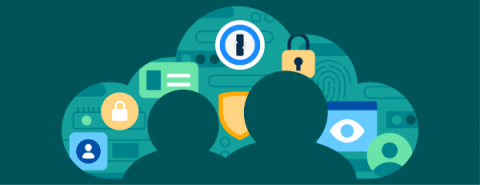Security | Threat Detection | Cyberattacks | DevSecOps | Compliance
1Password
Small Talk: security considerations for your startup
As a startup, you might have branded swag well before a cybersecurity strategy. And it’s not hard to understand why. Printing stickers is easy. Knowing where to start with security – the who, what, how, and why – can feel a bit more daunting. But it doesn’t have to, and is far more important to your company’s future.
Random but Memorable - Episode 8.4: Smashing Security Christmas Special
Data breach 101: How you can stay safe online
If you feel like you can’t go a week without hearing about yet another data breach on the news, you’re not experiencing déjà vu. Data breaches are on the rise, and massive organizations like Solar Winds and Facebook aren’t the only ones vulnerable to attack.
Burnout: The next great security threat at work
Many companies feel like they’ve successfully pivoted to remote and hybrid work. Team members have learned the tools and processes required to be successful outside the office, and IT departments have adjusted their security rules and policies accordingly. But now, nearly two years into the pandemic, another cybersecurity threat has emerged: employee burnout.
What does the Secret Key do for you and for us?
A unique feature of 1Password’s security is the Secret Key, but its value is often misunderstood by users and security experts alike. Instead of thinking in terms of “is it like a second factor” or “is it like a key file” it’s best to explain it in terms of what it actually does: It protects you if we were to be breached.
1Password Developer Fireside Chat: Ownership & Mutability Patterns in Rust
How using random usernames can keep you safer online
You don’t reuse passwords, so why are you reusing your usernames? Using a unique username does more than just protect your privacy, it also has important security benefits.
Fortify your security with 1Password and JumpCloud
Starting today, we’re adding JumpCloud to the list of popular enterprise identity providers compatible with the 1Password SCIM bridge, making it easier for more teams to provision and manage their users. We’re thrilled to add JumpCloud’s easy-to-use and highly rated service to our growing list of integrations.
Small Talk: balancing workplace productivity and security for small businesses
Go, go, go, go. And then go some more. For countless small businesses, this is your reality. But breakneck productivity is not always the healthiest approach, and it often comes at the cost of security.











